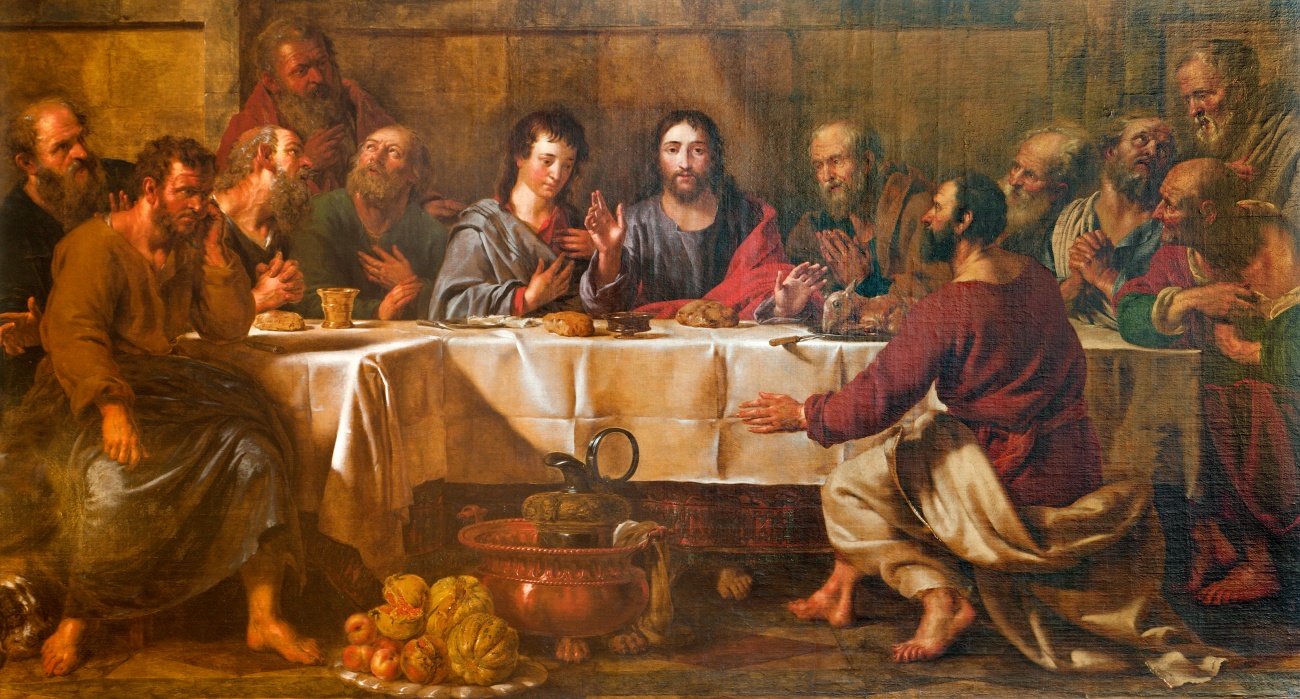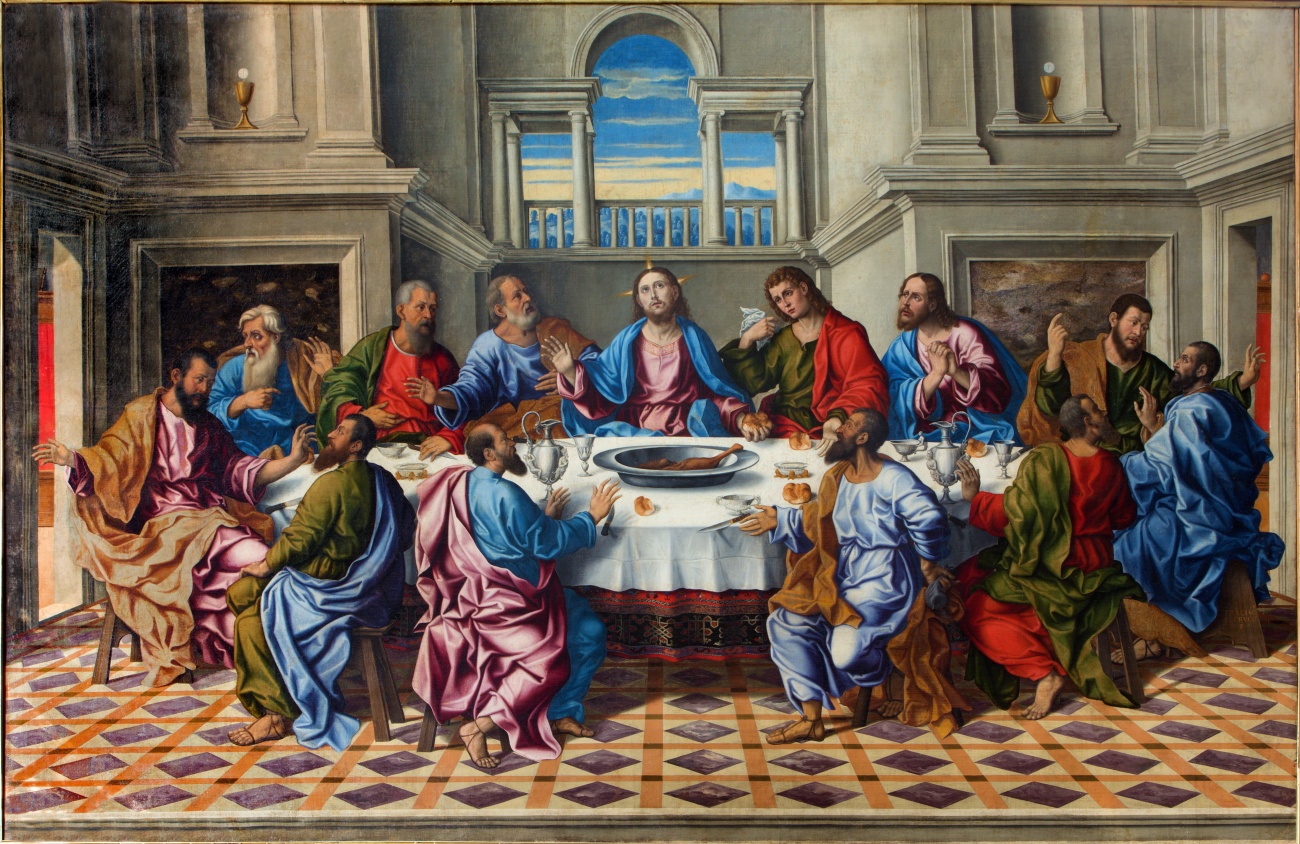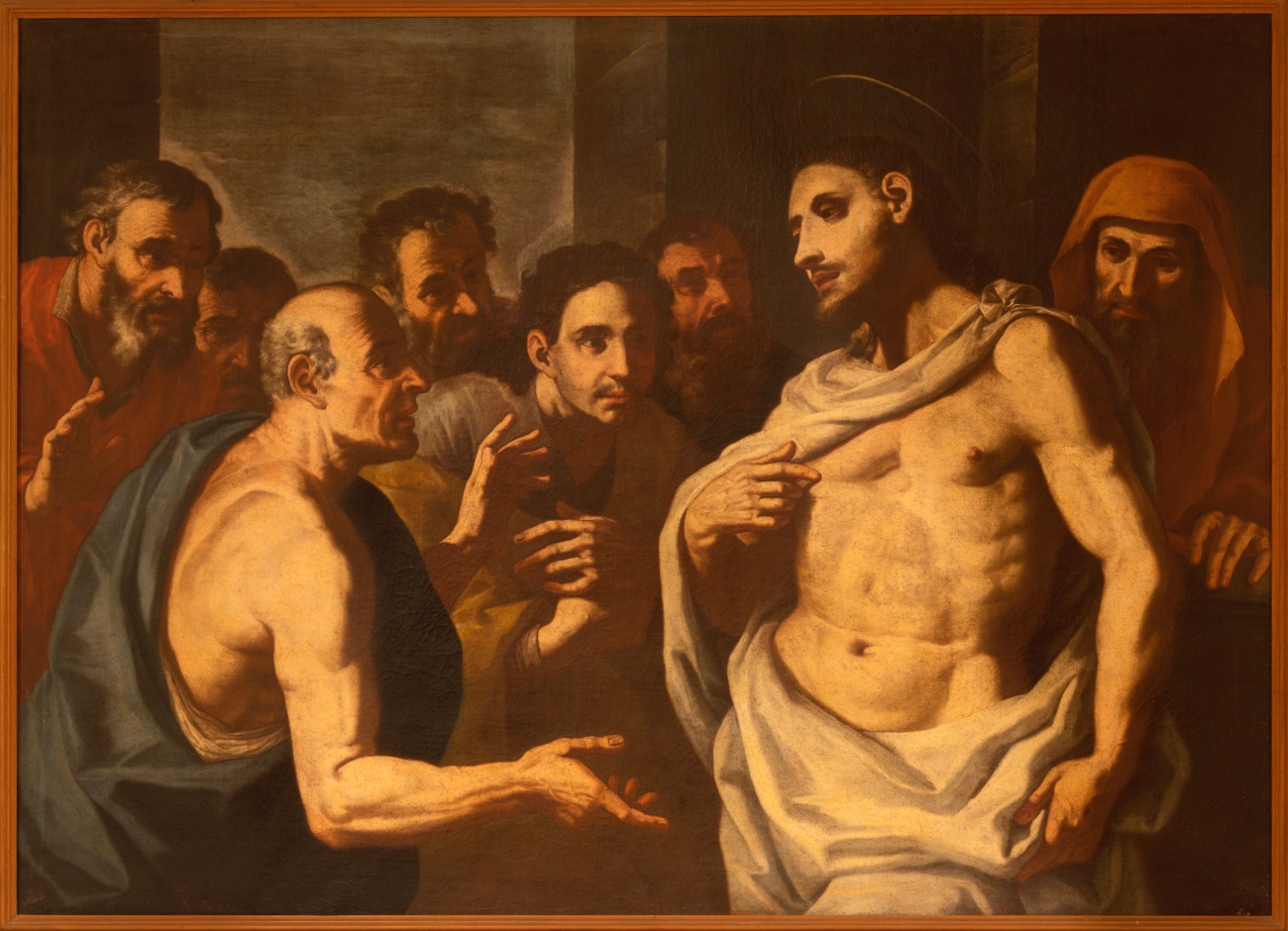I find the apostle, Thomas, one of the most interesting of the apostles. He is thoughtful and sensitive. He is a deep thinker and is one of those personality types who live in the moment, takes everything seriously, and reacts to things instantly. When he has a question, he asks it immediately, openly, and with a clear desire to know the truth about things. One can imagine that he was the one among the twelve who asked the most questions of Jesus and that Jesus loved him for his intensity.

We experience his personality in two significant moments in John’s gospel, the first one is here in this passage that occurs during the Last Supper Discourse. The second time is when he refuses to accept the fact that Jesus is resurrected until he can see and touch his wounds. In that case, I believe, it is not that he is a skeptic, but that he is struggling with his own sense of loss, his deep inner desire to really believe that it is so, and simple human doubt. That inner struggle is not unfamiliar to any of us.
In this passage, Jesus has spoken to the twelve about his impending suffering and death. He tells them, “Do not let your hearts be troubled. You have faith in God; have faith also in me.” He then tells them about his “Father’s house” with its many rooms that he is going there to prepare a place for them in that house, and that he will come back again to, “take you to myself, so that where I am you also may be.” Then Jesus adds this striking finish, “Where I am going you know the way.” And it is Thomas who responds immediately. He wants to know exactly what Jesus means. “Master, we do not know where you are going; how can we know the way?”

Jesus knew that Thomas was asking the question out of a sincere depth of love for Jesus and out of his fear of losing him. Jesus tells him then, “I am the way and the truth and the life. No one comes to the Father except through me. If you know me, then you will also know my Father. From now on you do know him and have seen him.” There it is. This is the trinitarian truth being revealed. It is in the person of Jesus standing there before their very eyes. And even then, they did not yet fully understand.
This is, indeed, a great mystery that they had to struggle to come to know, just as we do. Are we not like Thomas and the twelve? Are we not so moved by this mystery that we, too, are drawn to it with an inexpressible desire to know, though we have not the words to express it? But here is the truth: Jesus is what he says he is, that is, THE way and THE truth and THE life. And this is what we believe in faith; the way of God leads to wisdom, joy, light, and life; the way of evil leads to foolishness, suffering, darkness, and death.

When Jesus appears the second time in the upper room, this time with Thomas present, he encourages Thomas to touch his wounds and put his hand into his side, saying to him, “and do not be unbelieving, but believe.” He says these very words to us today as well, right now. Thomas’s response hits the nail on the head. Stunned by awe, he blurts out, “My Lord, and my God!” Then Jesus asked him, “Have you come to believe because you have seen me?” And, then, as if to affirm our own faith today, “Blessed are those who have not seen and have believed?” Belief in God is a gift of grace. And that grace is always available to us. But we must be open to that gift, even in our moments of doubt.
SKM: below-content placeholderWhizzco for FHB

